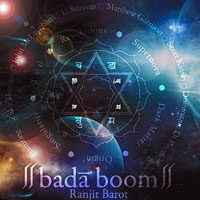World in Stereo examines classic and modern world music while striving for a greater appreciation of other cultures.
 Sorry Bamba: Volume One 1970-1979 (Thrill Jockey, 6/19/11)
Sorry Bamba: Volume One 1970-1979 (Thrill Jockey, 6/19/11)
Sorry Bamba: “Porry”
[audio:http://alarm-magazine.com/wp-content/uploads/2011/05/07-Porry.mp3|titles=Sorry Bamba: “Porry”]Thrill Jockey continues its foray into the world-music scene with a collection of tunes from one of West Africa’s forgotten figures, Sorry Bamba. A father figure to the many musicians who came after him but somewhat unknown outside of Africa, Bamba’s music is another testament to the never-ending investigation of Mali’s rich musical history.
Born in Mopti, a city resting between Timbuktu and Ségou, Bamba plays a confluence of styles that stem from the region’s folk traditions. He’s best known for his powerful sing-talk vocals that can withstand the grittiest Afro-funk, electric instrumentation.
But this compilation, covering a mere decade of the artist’s half-century-long career, is more than ’70s Afro-funk. Bamba’s career in the ’70s was at a crossroads, a time characterized by Mali’s independence from France a decade earlier. While the country promoted modernization and celebration of Malian culture, Radio Mali sought for a push of musical heritage. Bamba was one of the artists at the forefront as the band leader for the Regional Orchestra of Mopti. In addition to funky fuzz, the collection shows hints of Malian blues, American soul, and Latin rhythms among Bamba’s take on regional sounds, most particularly the folkloric songs of the nearby Dogon people.



 The Waitiki 7: Waitiki in Hi-Fi (
The Waitiki 7: Waitiki in Hi-Fi (


















 Ranjit Barot: Bada Boom (
Ranjit Barot: Bada Boom (